Interview with NEO Investment PartnersяМFrom LadurУЉe to Victoria Beckham, we only invest in cult brands
January 28,2018
NEO Investment Partners is an investment fund headquartered in the UK specializing in small luxury brands. On the website, their self-introduction is тWe back entrepreneurs crafting borderless cult brandsт. Their portfolio includes Victoria Beckham, LadurУЉe, Alain Mikli, Valextra, Pierre Marcolini and so on.
Whatтs the story behind this unique investment fund? What opportunities do they provide for small luxury brands, from the investment point of view? How do they interpret, build and deliver luxury brands? How did they persuade talents and celebrities such as Victoria Beckham, Alain Mikli and Pierre Marcolini to work with them?
The founder and managing partner of Neo Investment Partners, David Belhassen, has rarely accepted press interviews. On his recent trip to China, Mr. Belhassen had an exclusive interview with Luxe.Co, sharing his insights in investment strategies and the stories behind their investment.
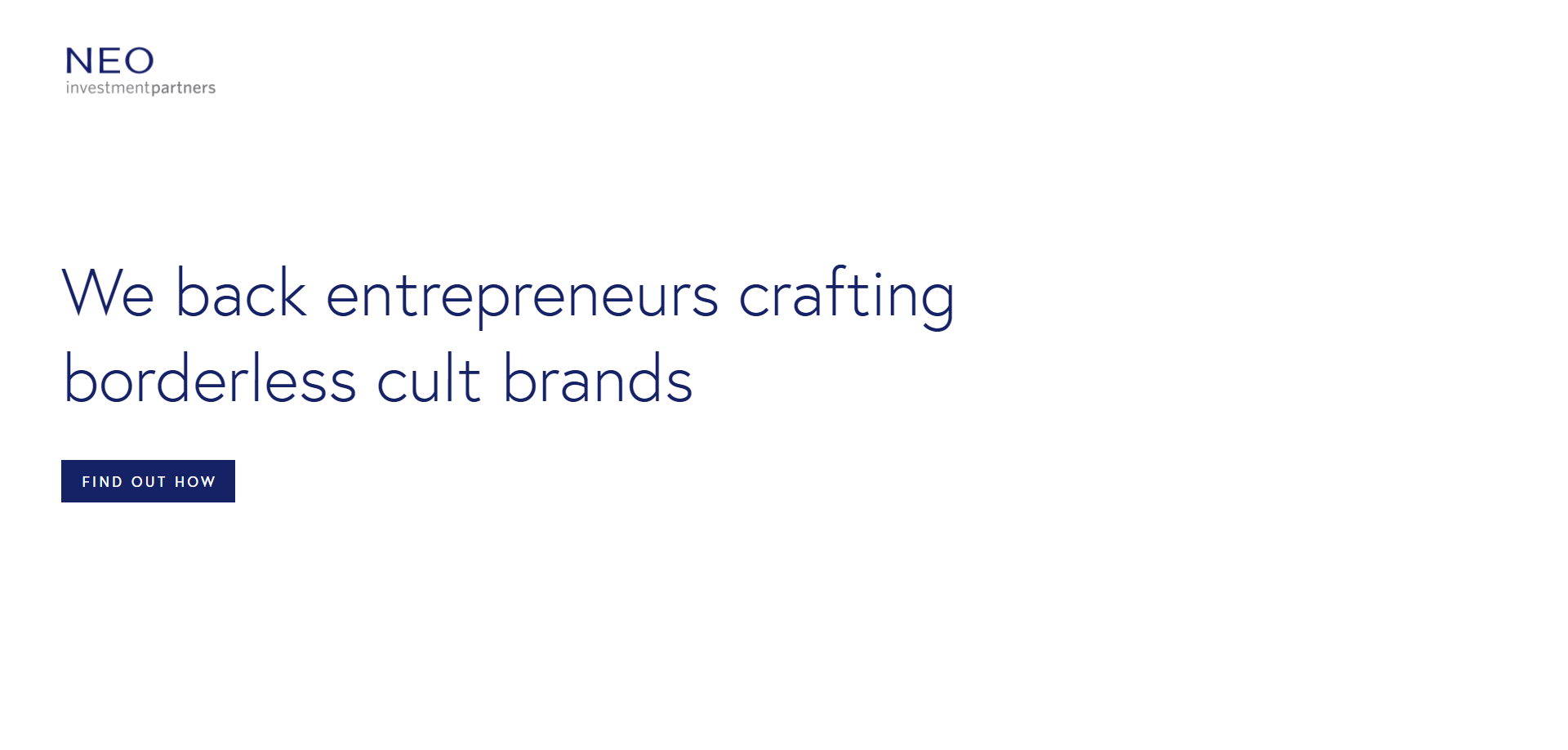
NEO Investment and Strategy
Luxe.Co: Neo has invested in many aspirational brands. Could you please tell us about your background? What inspired you to start Neo Investment Partners?
Belhassen: I am French and have worked in the US and the UK. In London I worked for Goldman Sachs.
The luxury world was interesting, but it is becoming too "fake". Their marketing is great. But when you are too focused on the business side, you lose the foundation. With marketing, you can create stories that never exist. It works if people donтt have a lot of information. Nowadays, people can access to all kinds of information, your foundation need to be true and honest. Luxury is about perfection and searching for perfection. It doesnтt go along with "fake".
I had the opportunity to meet with many family businesses in my previous job. I got to know a very old family who owns LadurУЉe and Paul, which are real authentic business. Our first deal of portfolio was in 2005 with LadurУЉe. It was a trial and worked super well. That was when I felt Neo could be really strong. I had trainings from different houses in London, Paris and US. My family have always been entrepreneurial and my idea is always to do luxury in the entrepreneur way. Neo really existed in 2008. This year it is going to be 10 years.
Luxe.Co: Consumer brands usually take years to cultivate, but funds have limited life span. How do you reconcile on that?
Belhassen: For the investment stage, we do not invest in brand-new companies. We invest in those brands that already have some time to develop their DNA, their product offering and their little tribe. We go talking to people who know the brand. If they say it is a good brand, we do not invest in it. If they say it is a great brand, we do not invest. But if they show a lot of emotion, and they cannot stand not buying it, we are very interested in it. Thatтs the common ground for all the brands we invest in. If the brand or the entrepreneur is managed to create that in a small town or place, then it can be replicated. Thatтs how I believe. We invest in the time when this exist already. And the business, the product and the DNA can be developed worldwide.
The second thing is that we invest in long term, usually 6 to 7 years. We do not want to go too fast, then you create too much abundance and kill the usual tribe you have. I think that luxury goes with being rare, not necessarily being accessible everywhere. You need to always have a balance in mind.
Our LPs are institutional investors. They are all very clear with our strategy, only investing in small luxury brands.
Luxe.Co: What is the background of your team? How do they support the global expansion of your portfolio companies?
Belhassen: There are three common characteristics. The first is passion for the brand. The second is entrepreneurship. From PA to CFO, they all have entrepreneur spirits and desire, always searching and learning new things. The third is different background. we have ten languages in 15 people. It is a multinational team with different background in operation, finance, law and so on. For every problem we face, we can see from all different angles. Our offices are in London, Paris, Shanghai, Taiwan and so on.
Brands and Market
Luxe.Co: What is your definition of тcult brandsт as in NEOтs mission statement?
Belhassen: Cult is our ultimate goal. For all the brands we invested in, they already had a cult in a certain place. With the new technology, we realize that the profile of the tribe in Paris is the same in Tokyo, Nanjing, LA and Rio. They have the common desire, roots, and ways of thinking. The real cult is a global cult with an international tribe. The idea to develop it international is very important.
Cult comes from Culture. What culture movement does the brandтs DNA fit into? How can you create the community and fit it, being fed by it and create the desire? That is cult. Technology developed the way of communication and will move it even further. Thatтs why it is a big opportunity for small businesses. In the past without the technology, in order to develop a small brand, you had to be very present and invested in a big way. Now you can really understand your tribe and the culture movement, follow it and be part of it.
The danger is how to get out of it. You cannot be everything for everyone. you need to know who you are, where you come from and stay with it. The world is big enough and the tribe is big enough worldwide.
Luxe.Co: How do you evaluate brand DNA?
Belhassen: For our investment evaluation, there are tangible and intangible, and quantitative and qualitative factors. In addition to focus group and so on, we also talk to people who donтt know the brand and see how they react. Then we talk to people who are not necessarily in the tribe, but experts in the industry, to see what level of work we need to do to make people aware of the brand.
The biggest work we do is to understand the DNA. Why is the brand here? What does it stand for? It is not how you do it, or what it does. It is why. There can be many reports. But once you crack it, it is only one page.
Business performance is secondary. In the sector we invest in, the business side can be fixed. You can hire talents, structure a good management team and have a real process. But you cannot invent a good brand with a strong тwhyт and DNA. It has to be done by creative minds. The brand founders started 10 or 20 years ago and it took time to nurture it. Thatтs the most important factor we consider. Even in our strategy, the number one priority is to nurture the brand, creativity and culture movement. Then the profit and potential come along on the business side.
Luxe.Co: How do you nurture the brand and grow it to a wider audience?
Belhassen: 90% of people will think that we need to have good investment, good communication and money to do advertisement and campaign. We donтt agree with it. We think money goes against being smart sometimes. When you do not have the money, you need to think of a way to reach the clients. Thatтs when you find your way.
The way we nurture the brand, is to first understand the brand in a perfect and clear way. You need to be able to define it in one sentence and one concept. For example, Valextra is Architect, LadurУЉe is Marie Antoinette, and Pierre Marcolini is love. Everything is very simple. Once you have that, even for people who donтt know the brand, they will understand the substance when they see the brand. The second is to cultivate a small community. We never try to reach everyone. We work with our community first. Once you cultivate this, you become their brand. Once you are their brand, they influence others. Then the community becomes bigger. Thatтs tribe. How to create the community can be simple things. It does not necessarily cost a lot. It can be collaboration with the community, dinner or participating in events that the community fits. Once you build this community, you can start having more actions and being very targeted.
We take business from small size. Once you reach the ceiling, you can change and adapt your strategy to another level. But if you do that strategy at the beginning, you are killing the brand. You need to go with the pace. The market is very big and technology helps us reach the tribe much quickly than before.

(Image above: Belgium chocolate brand Pierre Marcolini)
Luxe.Co: Whatтs your experience working with creative and talented people?
Belhassen: We are very humble working with these great and creative talents, who share their lives with us and let us to be part of them. They work very hard, for generations, to create something from scratch. For us, itтs fantastic. We did not realize how difficult for them to do that. So we have full respect for them. We never buy 100% of the business, we partner with founders. When we meet them, we never talk about the numbers or the business. We talk about the product, their story and family. They can feel our genuine interests. It will take us at least one year to build the relationship and mutual trust. After the investment is made, we will work with founders and their creative person to make sure everything we do fits their desire. At the end of the day, we are trying to realize their dreams. If they donтt want to go further, they would rather sell the business than being partners. Those who partner with us, they are ambitious and want to leave a legacy. They know they need to share with someone they can trust to go to the next level. We have developed a great way to work with these creative people.
Luxe.Co: When you take your portfolio companies global, how do you maintain the brand DNA and adapt to the local market? How do you make sure that local partners deliver the same message?
Belhassen: Some brands think if they adapt to the local market, they will lose the brand. But I think we have to adapt for sure. As I said earlier, the tribe is the same in different places in the world. You can have your DNA adapted to a few things and keeping the core. I asked my partners whether they would do something different if they created the brands in China, Tokyo or LA. They answered yes. It is the same person, same product, same feeling and same why. It is just you recognize that every local place has a different way of thinking. We do collaborations for many brands. It is more interesting and real to collaborate with an LA artist for the LA market.
It is definitely difficult to let local partners truly understand the brand. We tried to avoid total franchise. We partner to do JVs, where we can be actively involved. The agenda, the thinking of the brand and the development are controlled. Also, the choice of partners is very important. They have to know the market very well and spend a lot of time to understand the emotion behind the brand. Partners are difficult to find. For each brand, it is a different person. We tend to avoid big groups with different agenda. We prefer one person or one family. We would rather take the time but be right, than to go fast and find a wrong partner.
Luxe.Co: Whatтs your global strategy? Do you have a priority list?
Belhassen: We evolve with the market. When we invested in LadurУЉe, we came to China and tried to open stores. People were not interested. When we went to Japan, people were on board right away. Now things have changed completely. When we come to Shanghai with the brands that we have, people are super interested. They understand what they are and where they come from.
For every brand we invested, we have a first and foremost China strategy in mind. We do it as quickly as possible. China is the biggest market. It has evolved so fast, in such a clever way. We need to be here and learn a lot from here to be better in other markets as well. Online is very important for us, especially in China. China is very advanced in terms of digital market. Five years ago, the US is leading. But nowadays China is ahead and people are following.
Portfolio Companies
Luxe.Co: Can you share with us your portfolio investment in LadurУЉe, Valextra, Alain Mikli, ObicУ and Victoria Beckham?
Belhassen: LadurУЉe has four shops in Paris when we invested. It was a tea salon concept, selling macarons, cakes and pastries. I met with David Holder, who was very young and wanted to print his view and his vision. He had the idea that LadurУЉe should be a fashion brand. Everyone thought it was crazy. But if you go back to the history of LadurУЉe in 1865, it was the first tea salon in the world. It was the hot spot for all fashion people. Turning this origin to a key strategy makes a lot of sense. When we invested in it, it moved from the lead table as the best croissant or macaron in Paris to fashion magazine pages together with Gucci sunglasses and Sergio Rossi shoes. It became a fashion item. It was very daring at the time, but the root and the DNA were loaded completely. It was very successful and we opened a lot of shops. We had stayed with the business for six to seven years and sold them three to four years ago. The owner bought us out.
Alain Mikli is a different story. Alain was the investor for fashion eyewear. Before that, eyewear was just a tool. But he said that it was on your face and it need look great. It was established in 1978 and was a massive phenomenon is the 1980s and 1990s. We partnered to re-modernize the brand in 2009. At the time he was alone and a bit tired. But he had so much creativity. Alain was doing everything before. With our help, he could go back to his creativity, launch new models and reinvest the eyewear. We sold the company to Luxottica four years ago.
It is very often that the founder is the creative person, focusing on the product. They do not have enough time to put up a strategy or to control the cost or personnel. They can be successful to a certain level. Then they are stuck, even it is not the ceiling for their business yet. They need a strong team believing in the business to bring the brand the next level. Thatтs what we can offer. Once we have the brand right, we focus on putting together an amazing team and implementing the strategy. We create a bridge between the creative person and the management.
Valextra is good example of brand community. It was established by Mr. Fontana in 1937. Mr. Fontana was a bag designer for the architect community. These bags have no logo, but come with high quality and special skins for them, in a very architectural way. It became a big phenomenon in the 1960s and 1970s. But in the 1980s and 1990s, there was the trend of globalization and consumersт preference for glamourous handbags. Nobody really knew how to evolve the brand and the business died out. Carminati family knew the brand from before and had a dream about the brand. They bought it out from almost ashes, rebuilt the factory and rehired the people who worked there before to recreate Valextra. They just had one shop at the time. When people talked to me about Valextra, you could see their eyes were special. The family was very wealthy. But it was not about the money, it was about making something amazing and they had something to say about the brand. We talked for three years and then became partners. We had a common line to bring the brand to its original DNA. It is an unbelievable brand that never had a logo ever and are very structural and architectural. There were some interesting points that we did not know before we invested. For example, a lot of celebrities are collectors of their bags, like Steve Jobs and so on. Many big architect and designers have a strong connection to the brand. It is practical and high quality. It has developed very well in that community and is expanding in a very true and honest way. Valextra has come to China one year ago with the first shop in Plaza 66 in Shanghai. It has been very successful. We are opening in Chengdu and will go online very soon.
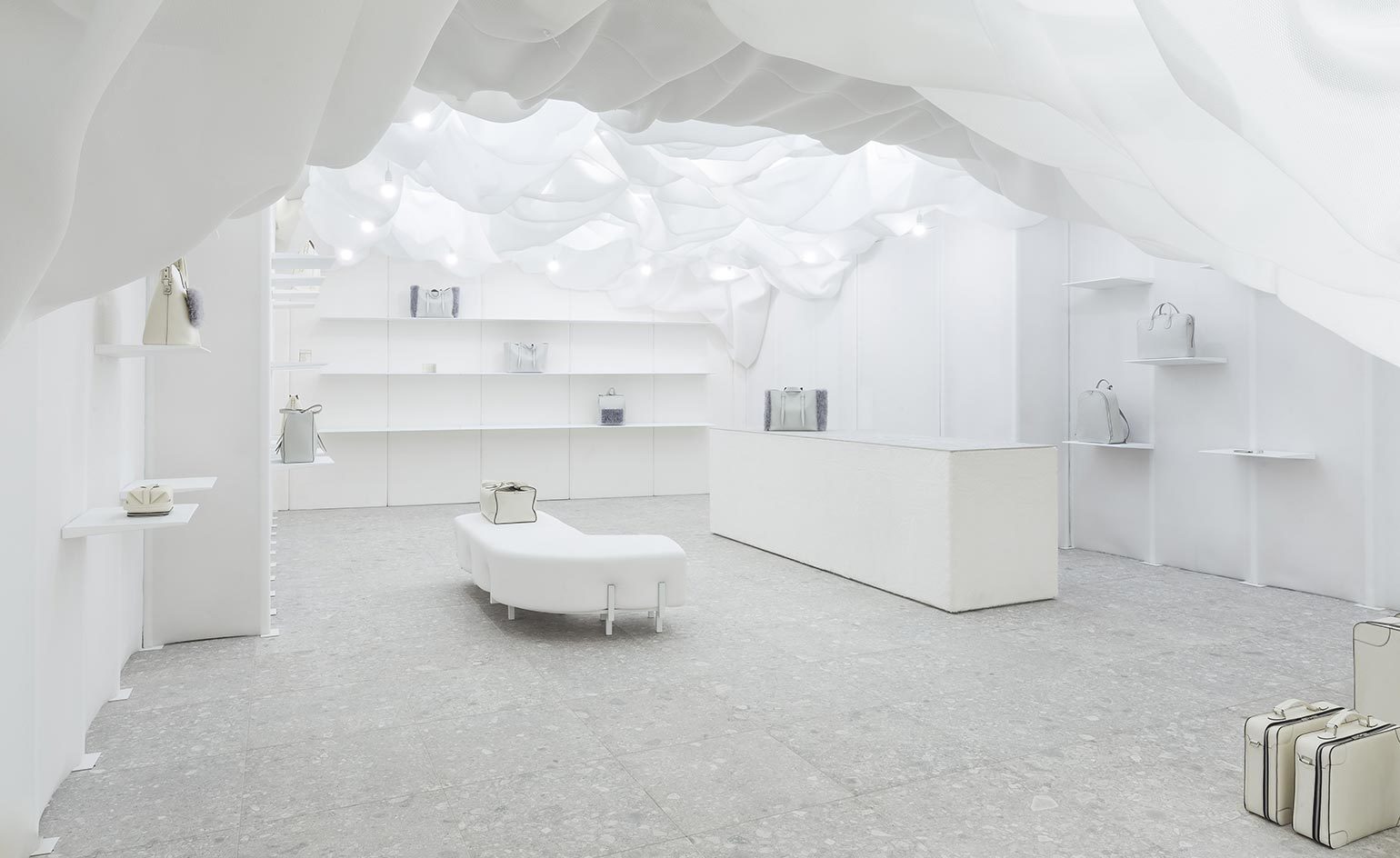
(Image aboveяМItalian luxury brand Valextra)
In Italian, ObicУ means "Here it is!" The founder of ObicУ Mozzarella Bar, Silvio Ursini, is also the creative director for Bulgari Hotel. He started ObicУ in 2004 as a bar-style restaurant, offering light Italian cuisine without onion or garlic. Chefs cooked in front of guests with fresh ingredients, which was a very innovative concept at the time. Picky Italian diners generally prefer independent restaurants, but ObicУ is an exception. They are popular in Italy and opened shops in other European countries, North American and Japan. They are the only Italian restaurant operating in all these regions.
ObicУ offers three different tiers of stores and customizes menus for different countries to suit local marketт preferences. All restaurants are profitable now. Neo appreciated the way ObicУ interpreted traditional Italian cuisine with a modern concept. After they invested ObicУ in 2010, they took the restaurant to London and North America.
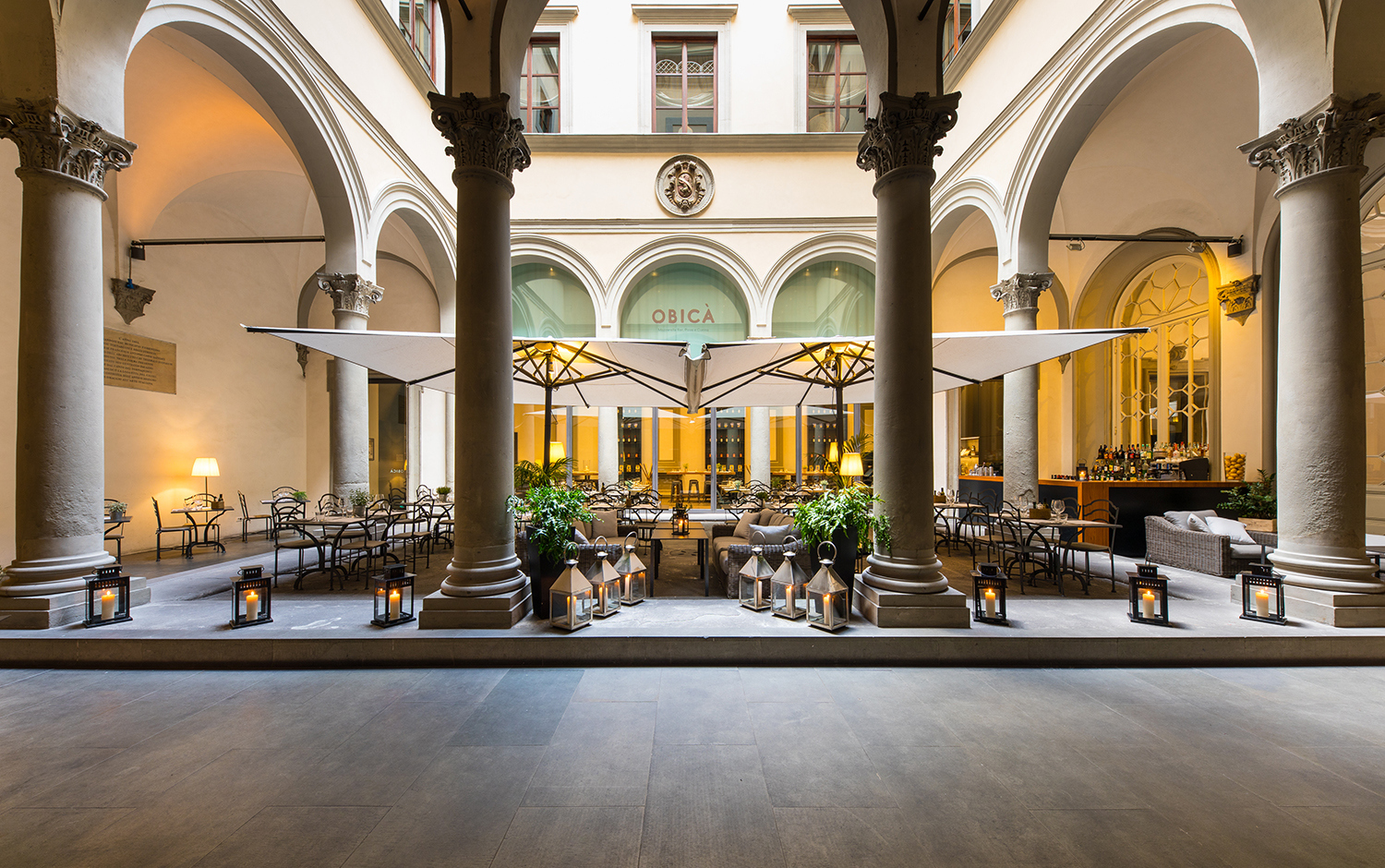
(Image above: Italian restaurant ObicУ Mozzarella Bar)
For Victoria Beckham, when you talk to people about the brand, you can feel the emotion behind. When we look at the life of Victoria, she is one of the biggest inspiration you can think of. She was girl power way before. It happened before and it is happening now. Spice Girls was one of the most successful groups in the world. She is married to an amazing guy and she has four kids. She is a fantastic mom and has launched her own brand. Everyone was expecting it was a celebrity brand. But now it becomes a real legitimate fashion brand. She invested in an amazing design team. She really fell into it and she has so much vision in mind. A lot of women are inspired by her worldwide. This community of people is so big in the world. Also she has a strong ambition. She wants to become one of the best brands. She wants to give access to her lifestyle in a very honest manner. She has a why and strong DNA. She reached the level that she need a partner to help her reach the next level. We met a year and half ago, we talked very well. The alignment and strategy were so clear and we partnered. There are so many projects ahead of us. It will be an amazing adventure.
There will be a lot of happenings. We will grow the business geographically. Victoria wants to come to China and spend a lot of time here. The US has a lot of potentials as well. In terms of product categories, we will invest and develop more in bags, shoes and beauty products. We just signed a five-year creative directorship with Reebok for luxury sportswear line. It will be really exciting.
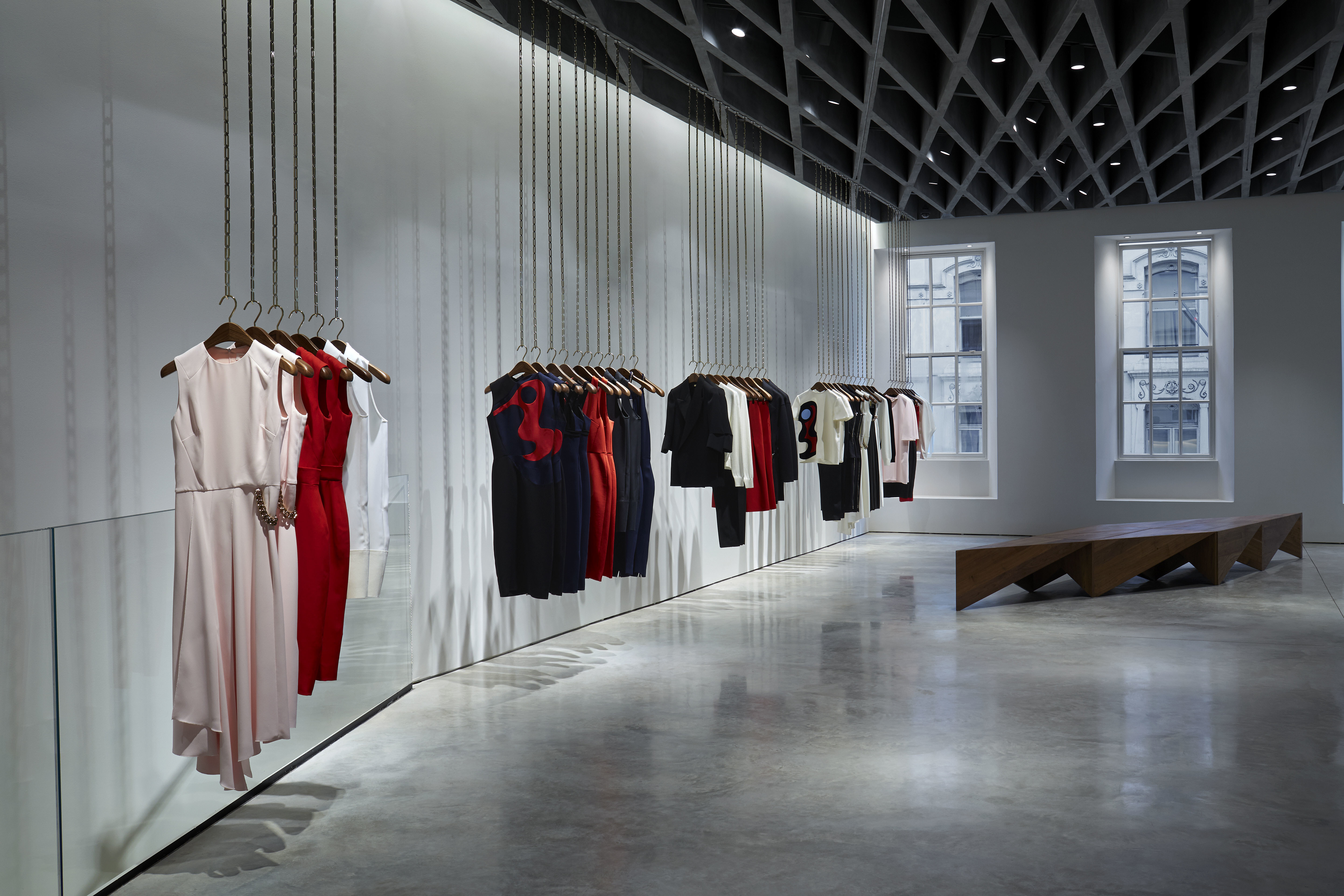
(Image above: UK designer brand Victoria Beckham)
фИЈImage Source: Brands' websites





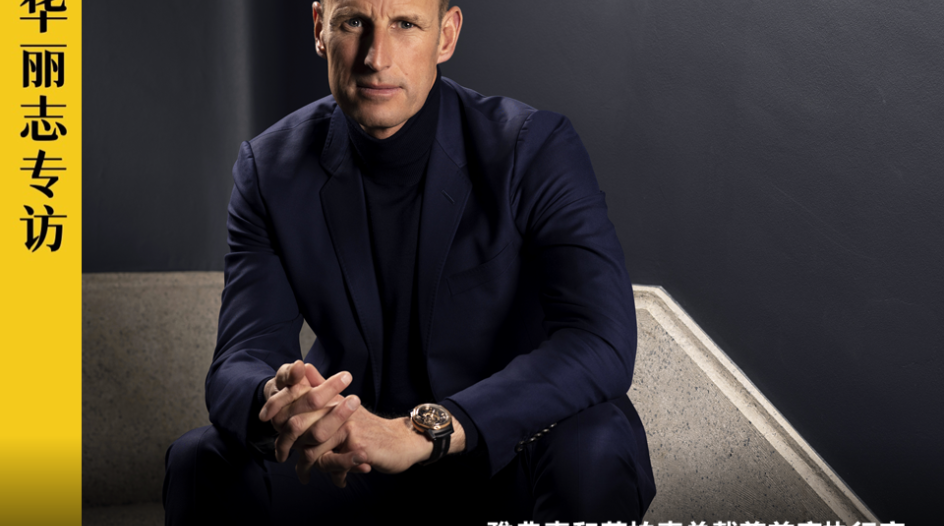





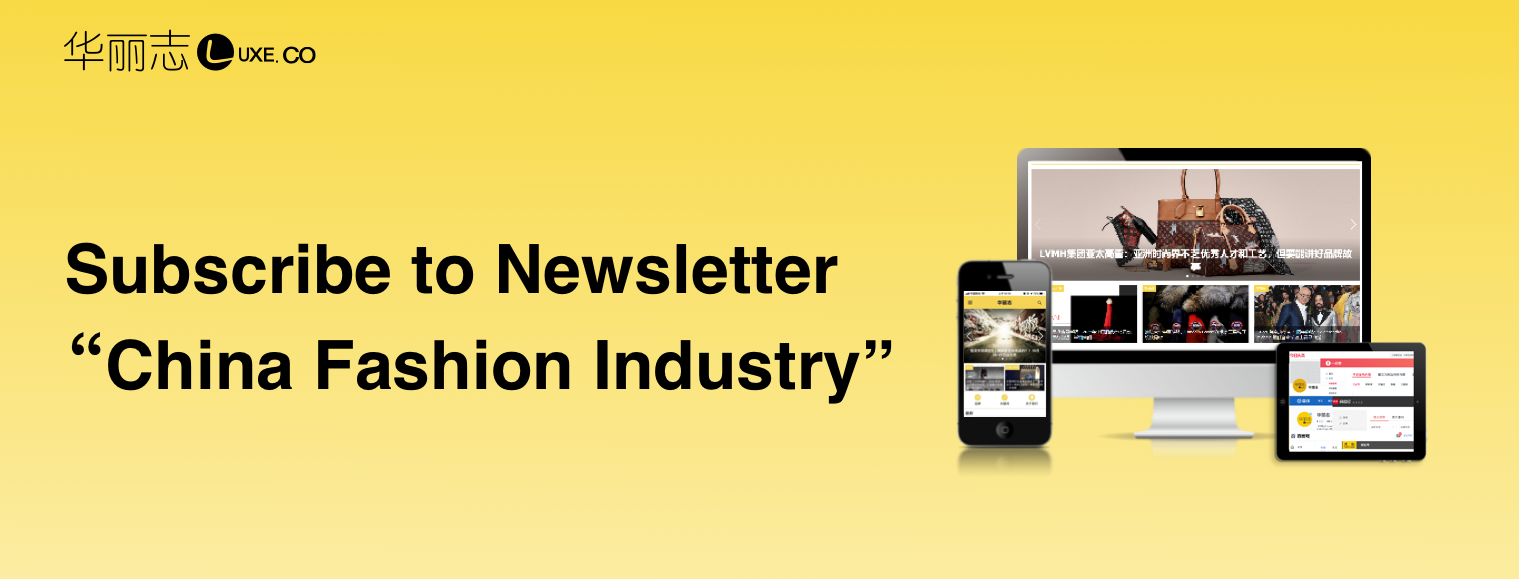
Comments